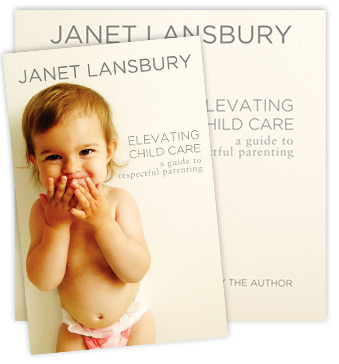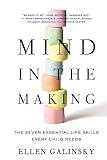It’s time to go, but our child says no. We’ve tried explaining, coaxing, bribing, scolding. We’ve given choices, played games, filled our child’s cup with attention and quality time. We’ve even tried half-heartedly acknowledging, “I know you don’t want to go, but we must…” All to no avail.
Frustration mounts, guilt and doubt seep in… What if she really dislikes her school (we’ve chosen the wrong place!) or she isn’t ready yet (she’s too young!) and we’re forcing her to go? If we work a day job, we might worry that we should be staying home. But even if these are legitimate issues to consider, this certainly wouldn’t be the time.
We finally resort to begging and pleading, or perhaps even consequences and punishments. And still, our child won’t budge. It’s maddening.
But there’s one thing we haven’t done: Just let the feelings be. We haven’t given our child the time, space, and silence she needs to be able to share with us, to know she’s been heard, and to feel the safety of our calm acceptance.
Really? Won’t this open the floodgates and completely undo us? We have concerns, BIG concerns like these:
Letting feelings be will take too long. It’s the opposite, in fact. Acceptance only takes a moment or two and actually ends up saving us time we’d be spending in power struggles with our child.
Letting feelings be will mean we must sit with our child while she’s upset when we actually need to finish getting ourselves together and/or care for other children. A little wholehearted acceptance goes a long way. There’s nothing wrong with saying, “I need to go do such-and-such now, but I’ll come back in a couple minutes to check on you,” after we’ve calmly made eye contact and genuinely acknowledged, “You don’t want to go today.” Acceptance is a passive practice that doesn’t require us to do something or stay there waiting for our child to feel better.
Letting feelings be will make my child think that I’m giving in and that she won’t have to go. Not true. Not when we perceive the clearing of her feelings positively and receive them with confidence. Not when we embrace these difficult moments as golden opportunities to:
relieve our children of stress and nervousness
relieve our children with the knowledge that their feelings are healthy and safe and they can handle them.
relieve our children with trust in us and in themselves.
Heather’s story illustrates:
I wanted to share a success story with you! My husband and I enrolled our 4 year old daughter in a 2.5 hour per day, 5-day-a-week public preschool. It was not our first choice, and we are taking a few weeks to assess whether or not it will be a good fit for her long term. We only enrolled her to have opportunities to socialize with children her age, since none of our friends have young children.
This was her first week, and it was extremely rough for her. I have always stayed home with her, and we are together the vast majority of the time, so going to school was a huge change.
Yesterday was the worst day of the week. She cleverly hid all her shoes so I couldn’t find them before school, so for an hour I was frantically searching for them. When I finally found them and got them on her feet, she kept kicking them off screaming, “I don’t want to go!” over and over again.
When we got in the car, she kicked off her shoes again and was spitting on me from the backseat the entire way to school. Spitting is entirely uncharacteristic of her, so I knew she must have felt extremely uncomfortable.
That night I re-read a bunch of your old blogs and realized that though I was acknowledging her fears, it was on a very superficial level — just saying the words but not connecting with her first — so they were essentially meaningless. I also realized I was trying to “convince” her to have a good day. I would say, “But you will get to make so many fun projects! Will you make one for me?” I realize now that though well-intentioned, statements like that can be invalidating.
Today I took a completely different approach. When the time came to leave for school and she started screaming that she didn’t want to go, I kneeled down in front of her, looked into her eyes and said, “You really don’t want to go to school today.” She kept screaming, and I repeated myself a few more times. She stopped screaming, helped me pack her backpack and put it into the car, and then we had time to race up and down the driveway a few times before she jumped right into the car and into her car seat.
When we got to school, she got right in line with the other pre-k kids and waited for her teacher at the door. I gave her a kiss, said goodbye, and walked away. I am realistic enough to know that the resistance to school will probably happen over and over again, but I now know how to approach it. Thank you!”
Here’s another story, a message I received from Marion while I was writing this post (which I saw as a sign that it should be shared). Her daughter Marlowe is a recent “graduate” of one of my RIE Parent – Toddler Guidance Classes, and this experience made me miss her more than ever:
A quick thank you for all I learned in your RIE class. Marlowe had her third day of preschool today, and I sat with her, witnessing her cry and holding her hand before we left. I didn’t try to change her mind about being upset. I got her a little wet wash cloth. She cried for 20 minutes.
Then she just got up and said, “Ok, let’s go Mommy. When you leave, I’m going to draw you a picture”.
***
(Thank you to Heather and Marion for allowing me to share your stories)
Here’s a related podcast that might find helpful:
For more, I recommend these resources:
Helping Children Say Goodbye Without Distracting by Emily Plank, Abundant Life Children
I Accept the Mess: What Setting Limits Looks Like by Kelly Meier, Respectful Parent
5 Steps to a Peaceful Day Care Drop Off by Kate Russell, Peaceful Parent, Confident Kids
My podcasts, particularly the one above and also “When a Child Can’t Get Her Act Together in the Morning”
I share a complete guide to gentle leadership in my book,
No Bad Kids: Toddler Discipline Without Shame
(Photo by Bradley Gordon on Flickr)















I find this an interesting read, but I struggle to find how I can apply this to my life with three children. Do you have any examples of how people deal with multiple kids all with differing needs and views. My youngest just started jk, my middle is in Sk and my daughter grade 3. At the end of the first day of school my youngest was exhausted and on the floor crying, my middle was running out of the building to play in the yard and my 7 year old was hiding from me. How is RIE possible
When you have 3 sets of needs?
Sounds challenging! Can you tell me how you are currently handling these situations? From there, I may be able to help you make adjustments.
Great question! I feel the same.
Thank you for this post! Even though our 3 year old has been attending daycare full-time from a very young age, some days are difficult to get him out the door. He asks when he wakes up if he is going to school that day, and I think it helps him mentally get used to the idea, so that, 1.5 hours later when we leave, he is ready. Sometimes though he doesn’t want to put on his shoes. I don’t make a big deal out of it, or turn it into an argument; if we are in a hurry I just bring the shoes along, and by the time we get to school he is happy to wear them. Of course this will have to change when winter comes! But most days he likes to put on his own shoes.
Sounds good, Faith! You’re welcome
I have a 2.5 year old who does not react to departures with defiance or tears but rather turns everything into a game and laughs at our attempts to get out the door, even if we’ve prepped him all morning, or even when we are leaving for a pleasurable activity (the playground, grandparents house, play date with other kids). I’m ok with rolling with negative emotions, but a joyful rebellion is beyond me. This extends into a lot of other areas of boundary setting where he thinks parental displeasure is funny. He hides his shoes, runs away, etc. It feels strange saying ” you are feeling silly right now but it’s time to go” and this quickly tests our patients as parents such that we end up threatening to leave without him (a desperate bluff but likely scary for him which makes me feel guilty). Any tips on an impish rejection of boundaries?
I would calmly and goodnaturedly pick him up and carry him along, all the while acknowledging, “You wanted to run away when it was time to go, so I’m helping you along.”
In my experience, boundaries are good to communicate, but it is not always good to force or cajol or convince others to comply. If they are capable, they will, for the most part.
I second what Anna said. My son is also 2.5 years old and gets a glimmer in his eyes when he’s running in the other direction, wants to play, tries to drive the car. He wants to get into the car himself, great I have no problem with that, however he gets in and will sit anywhere but his car seat. He’s not pouting about going somewhere, but I think the message he might be giving me is that he just wants to spend time with me instead of always going somewhere or to caretakers. As a single mom I’m finding it very difficult to manage my impatience 🙁 and I know he only has me to rely on.
I’m not sure if that’s the message: “I think the message he might be giving me is that he just wants to spend time with me instead of always going somewhere.” But I imagine that’s what you are concerned it is… and that will create reticence on your part… and the reticence will lead to more and more stalling. 🙂 I would move him along, perhaps carry him as needed, and not allow him to stall.
His “making into a game” seems to me that he is searching for some control or influence. I have experienced children who do this as well, and if you cannot play along then it’s just unfortunate. It is a sign that your life is not your own, that you are beholden to outside forces. Life should be full of choices and possibilities and our children are pushing us to live this way whether we feel we are able to or not. Good luck!
As a working single mom I needed my son to help us get where we needed to be, on time, from early years. I was lucky that my son was with me in this, and dawdling or resistance was rare.
He was a major baseball fan, we watched lots of games live and on tv. The strategy that worked for me was using my radio announcer voice to announce a play by play of his progress towards getting dressed (suited up) and out the door (where “the crowd goes crazy as M takes a final lap towards the bus stop!!”)
Sounds like fun!
Hi Janet, last week my daughter had to have a blood test. I told her about it before we were leaving. “Will it hurt?” “It might hurt, like a little pinch. It won’t hurt for long”. She was hysterical. Sobbing in my arms, “Don’t make me do it, don’t make me do it”. I hugged her until she’d calmed and said, “You don’t want to have the test. You’re feeling worried about it”. She nodded and not another word was said about it. She sat perfectly still in my lap during the test, as the needle went in, one tear rolled down her cheek. When I first told her about the test and she’d been so upset, I thought I’d done something pretty wrong, but I realised she was ‘just’ really worried and with me completely accepting that worry, she was ok. Somehow being ‘allowed’ to worry took the worry away. It feels like a miracle, but it really is just acceptance. As always, thanks Janet. Kate
Wonderful story, Kate. Yes, I can relate to this, because when I do big speaking engagements, I often have a little mini-meltdown/cry beforehand and it takes away most of the nervousness.
I have the same problem as Anna and Kara – my 3 year old drives me insane with the same problem everyday. When we get home from school or where ever she refuses to get out the car. She will jump into the drivers seat as soon as I undo her seat belt and start pretending to drive the car etc. If I physically lift her out there are tears and tantrum but if I try and ask she also makes a complete game out of it and just laughs at me. It is so frustrating. I have tried bribing, commanding etc but nothing helps. Our yard is downstairs from our garage and the garage opens directly onto a busy road. If the garage was in our yard I would be happy to leave her in the car but I can’t as it wouldn’t be safe. Any advice would be appreciated!!
I would physically prevent her from doing those things… right away, in kind “mother bear” style. Don’t wait until you are frustrated.
Yep I know children such as this! It can be maddening if you don’t have the time to sit and wait for them to be finished. As long as it was safe I would let them pretend. You can say something like “I don’t want you to touch these parts of the car” so that they are aware of how you feel. Wait for them to stop, don’t say anything…maybe check your phone or whatever. When they finally stop then just get out of the car and go on with your day.
Allowing time for feelings has been working really well for us! My daughter is 2.5 almost very opinionated and likes to sleep past 8 some days. On our early days we have to wake her up at 8 to get out of the door in time. I used to try and slip her clothes on and carry her out still sleepy thinking she’d get that extra 15 min of sleep but that always back fired into a huge meltdown. Waking her up at 8 giving her a heads up, “it’s almost time to leave for school.” Here’s your outfit we’ll put on in a few minutes,”(she hates getting dressed in general)” I’ll go pack up and check on you soon.” Then I check on her knowing she’s not ready yet, “how are you? Are you ready or should I go brush my teeth?” She’ll say no, I’ll come back and then she’ll help me get her clothes on and off we go. She attends an in-home preschool and they eat breakfast at 8:30 so if she’s not ready to eat with me then I don’t worry because I know they all eat a big breakfast together at school. I love that, such a blessing for the early morning hussle which thankfully it sounds like all struggle with working parents or stay home parents alike!
Sounds like you’ve got this figured out 🙂
“relieve our children with the knowledge that their feelings are healthy and safe”
And that monster under the bed is a real threat…
So THESE are the kinds of kids that are allowed to temper tantrums on the floor of the grocery store.
This is the perfect training in creating unemployable adults.
Or in creating future inmates that must be FORCED to comply, because they wouldn’t comply willingly with a good attitude, thus causing them to be inmates.
It actually works the other way around. Forcing a “good attitude” creates phoniness. It teaches children to dislike themselves and continue to hide their true feelings from their parents and others. They may be “employable”, but they lack authenicity and may find it difficult to experience true intimacy.
I’d personally rather have the honest, trusting, close relationship I have my kids. All three are successful and kind, and we’re often complimented on their good character.
Dear Jtk,
Though I’m no expert, I believe you are confusing feelings with actions. FEELINGS are *not* the enemy!
Being able to recognize feelings is the first step towards being able to correctly address them. Both for adults and children.
For example: being angry is OK, hitting is not. Anger can be expressed in infinite other ways (stumping feet maybe, or just breathing deeply).
Children have less control of impulses, but if feelings are understood and validated, there is less need to act them out (again, both for children and adults alike!)
The point is we have no control over feelings (hence we should just accept them), but we are certainly in control of actions!
Do many adults not have feelings that should not ever be validated? Similarly for children?
Feelings of lust, malice, anger and vengeance actually matter, not ONLY when they are acted upon.
Impulse control is not a part RIE parenting in any way shape or form?
What person who is being honest hasn’t felt lust or anger or like they wanted revenge? “Let him who is without sin cast the first stone.” These are pretty standard human emotions. Even Paul in the Bible talks about what a wretched man he is, asking where can he go to be set free in Romans 7. God calls us to confess, rather than to hide what we do and think.
From what I have read about RIE, impulse control is taught in the most effective way I have seen–it is modeled. Parents who stay in control and unruffled in the face of big scary emotions show kids they can have the feelings, but they don’t have to act on them. Sometimes just saying something out loud makes it lose all its power. Admitting how you are feeling to a trusted confidant also brings accountability.
If children don’t feel safe to admit their feelings to parents, those things don’t go away. They WILL find someone to talk to about it. Unfortunately, it is often the people who offer absolutely no accountability, but may even encourage them to act on it instead, i.e. the bad influence.
I think this article also responds to some of your concerns: https://www.janetlansbury.com/2014/03/parents-struggling-with-boundaries-3-common-reasons/
Adie, that was a beautiful and relevant reply. Thank you for modeling how an adult employing RIE acknowledges feelings but stays unruffled. My son turns 25 this week and even though I had never heard of RIE back then, I DID remember the things I wished for as a child…to be heard and respected, and apologized to if appropriate, and to be allowed to be upset rather than smacked for it. So, I used that remembrance to raise my son and we have a very beautiful relationship and very unlike the one he has with his father who held beliefs similar to the person you responded to…my son has said he has to “hide who I am” from his father. His father, ALSO lives in that place of fear that boils life down to getting a job. I say, “consider the lilies of the field…” and set that worry for our young children on a shelf.
My 2 year old son has started a new daycare this week (his normal daycare closed for the summer) drop off has always been a struggle for us he clings to me and often cries when I have to walk away I prepare him each morning and talk about all the fun things and friends he will see while at school I say I know you don’t want to go but mommy has to go to work now I feel like I spend more time than I should trying to acknowledge his feelings and it drags the transition out my boy is quite bashful when it comes to new people and doesn’t want the new teacher to hold him at the old daycare the ladies would hold him and he would calm down within minutes the new teacher told me that yesterday he sat at the door for 20 minutes after I left not crying just sitting observing the other kids at the breakfast table the thought of this breaks my heart do you think this is healthy normal behavior? should I ask her to do something different? any suggestions for what I can do to help him?
We are raising our now 3y old grandson…still working also, so he has been in childcare since he was 1. When we transitioned this summer to pre-school, he was happy but anxious and hesitant. We read “Not This Bear” every night for two months, and still periodically…a little bear that doesn’t want to go to school…but Mama bear is waiting by the tree. He loves school, still some days would rather stay home, but we just code word “not this bear” and I remind him I’ll be waiting by the tree. We also park as far away as possible so we have a nice walk…and we get up early…he gets bored and wants to go “right now”. Not this bear.
I LOVE your story and will definitely check out the book. It sounds great. Thank you, Melissa!
My almost 2-y-o is mostly happy to get into the truck and head to school. When we arrive, he runs up the walkway to the front door, greets everyone he sees, and makes a beeline for his classroom. When he sees his teacher, he beams and runs to her. Then, just before he embraces her, he stops, turns, a look of worry on his face, and runs back to me. He wants me to hold him, and often says things like “mama want to hold me at school today a little bit?” Or “mama stay and hold me?” It’s at this point that things get tricky. I never jut sneak out when he is distracted- I made that mistake once and realized how damaging it was- but I often give him a hug and a kiss and just walk away. His teacher brings him to look out the window etc (distraction), and he has usually stopped crying by the time I make it to the door. Would you suggest I ask the teacher to avoid the distractions, and just let him have his emotional experience? Would you suggest I alter my exit strategy? I’d love some advice on this one! (Also brushing teeth, but that’s a different post…)
(Just to clarify, I do pick him up and we have some snugs before I hand him off and head to work…)
Our daughter, Tori, will be 17 in Feb., and STILL has transition issues. We have learned to let her be, and when she is ready-she is ready. We have fought to long the battle and realize just letting her get “whatever” it is out, then we can move forward.
Hello,
We are sort of at our wits end with transitions. Our 22 month old loves her “school” (daycare) and behaves very well at school and at the houses of friends and family.
But at home, and with any transition, it is full blown meltdown time. We have tried many different techniques for things like: heading to bath, climbing in the carseat, leaving school and heading to the car, putting on PJs etc. If she feels like it, these things can be fun! If she doesn’t, it sometimes takes two of us to get through it, with lots of tears and hysteria along the way. If the transition isn’t important (like going upstairs or downstairs), we take our time and let her go when she is ready. But there are times where that is not possible.
The best example is getting in the carseat. She will not get in the carseat. She arches her back, grabs headrests or the car ceiling (think of a cartoon of a cat avoiding getting in a bathtub). Or she scrambles out before I can buckle her. She climbs to the seat next to the carseat, wants to play on teh floor of the car, or- more recently climbs into the front seat.
This weekend she started the car on accident before I could run around and grab her. It is getting serious. She can’t have free reigns of the car, it is not safe. I am sorry to say I have resorted to physically forcing her to get in the carseat, which feels awful. We even avoid making extra stops to avoid getting in and out of the carseat.
We have tried counting slowly to remind her it is time. We have tried having special books ready for her to read when she is buckled. We have tried talking about getting in the carseat long before it is time. Nothing has worked. When she is in the seat, she is happy and dances along to music and chatters etc.
Any ideas for when giving space and time is just not safe?
Our 3 year old daughter entered pre-k 3 and is very attached to the lead teacher (there are 3) who is the warmest. Whenever she steps out of the classroom to eat, use the bathroom, make copies thru’out the day she cries. It’s been a month. They’ve tried telling her to make a surprise picture for her teacher when she returns and she just cries. Any suggestions? thank you!
Hi Janet, from memory I’m pretty sure you have more than one child but I don’t recall the age difference. We have a 3 year old, a 16 month old and one on the way. I found it easier to implement these strategies when my 16 month old was younger & I could focus my time on my toddler. I’m interested in learning from your experience how you have tried to manage children’s competing needs that have to be addressed almost at the same time.
I have had this approach for the past few weeks and my 3 year old has not been in once. She was so good at going in originally as I waited with her until she was ready to go in by herself, and I was ready to collect incase she changed her mind, so she had the confidence to be there. she’s been going for a year confidently. Unfortunately things seem to have changed and now she seems very unsettled. She was sick just before this change and so we stayed off having a self care day but now she doesn’t want to go back. I am at a loss as to how to approach this carefully and mindfully. She has had a change at school and is now in pre school instead of nursery (this was a while before she was sick). She has also become very irritable and short tempered at home no matter how much effort we put into validating feelings and giving her more one on one time. She is still napping most days, if she misses a nap she falls asleep in her evening meal. She has also gone backwards in potty training (which she initiated in the first place) and is now back in pull ups. Any advise would be greatly appreciated.
Hi, I like your article and approach. Thank you for enlightening us.
I have a 3 year old granddaughter who is resistant to learning the sounds of the alphabet and learning in general. If I show her flash cards and ask her what is in the picture, she will joke and not answer my question.
How do I handle this resistance?
She is good at playing memory cards and doing jigsaw puzzles.
Thanks in advance.
Hi,
I have a 5 year old, who attends daycare/preschool 5 days per week, she has been going since she was a baby, is social and enjoys going. I have issues every morning getting her to get ready for the day, there is a lot of refusal to get dressed,brush teeth etc, she often wants to pretend to be a baby or animal – this usually results in me being late for work and I feel like a pressure cooker of frustration trying to get organised in the morning – I literally don’t know how to get her on board with getting ready so we are not late. Any advice?